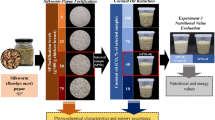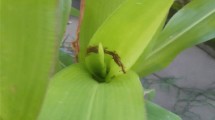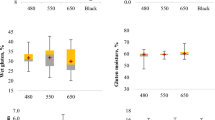Abstract
TO-DAY, the losses of foodstuffs caused by insects, principally weevils, often disregarded in pre-war days, cannot be overlooked. A conservative estimate has been made that on the average losses of ten per cent of all stored food are caused by insects1. In the tropics the life-cycle of weevils and other insect pests is accelerated as the temperatures are close to the optimum and, furthermore, breeding is continuous throughout the year, so that the losses can attain appalling proportions—samples of grain offered for sale have been seen in which more than 50 per cent of the individual grains have been seriously damaged. In such infested grain there is a further attack by the flour beetle, Tribolium castaneum, which spoils the little good grain remaining by the taint.
This is a preview of subscription content, access via your institution
Access options
Subscribe to this journal
Receive 51 print issues and online access
$199.00 per year
only $3.90 per issue
Buy this article
- Purchase on Springer Link
- Instant access to full article PDF
Prices may be subject to local taxes which are calculated during checkout
Similar content being viewed by others

References
Freeman, J. A., and Turtle, E. E., "Insect Pests of Food". (The Control of Insects in Flour Mills.) (London: H.M. Stationery Office, 1947.)
Jepson, W. F., Annual Reports Dept. Agriculture, Tanganyika Territory, 1946, 1947.
Warner, P. G., unpublished data.
Author information
Authors and Affiliations
Rights and permissions
About this article
Cite this article
BECKLEY, V. Protection of Grain against Weevils. Nature 162, 737–738 (1948). https://doi.org/10.1038/162737b0
Issue Date:
DOI: https://doi.org/10.1038/162737b0
This article is cited by
Comments
By submitting a comment you agree to abide by our Terms and Community Guidelines. If you find something abusive or that does not comply with our terms or guidelines please flag it as inappropriate.


